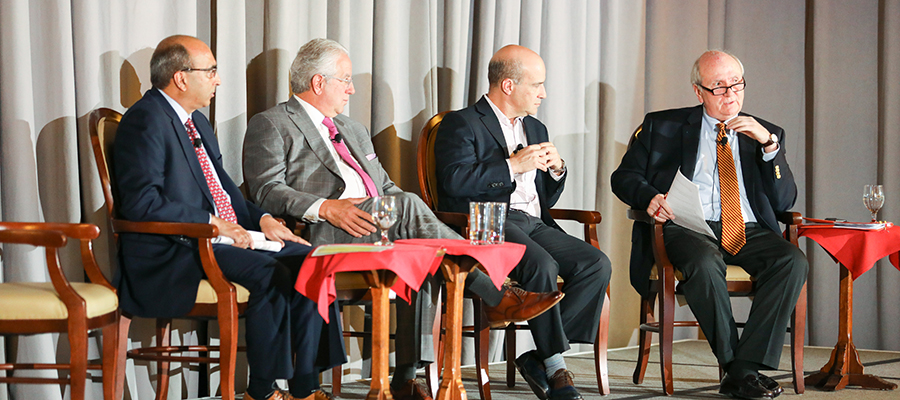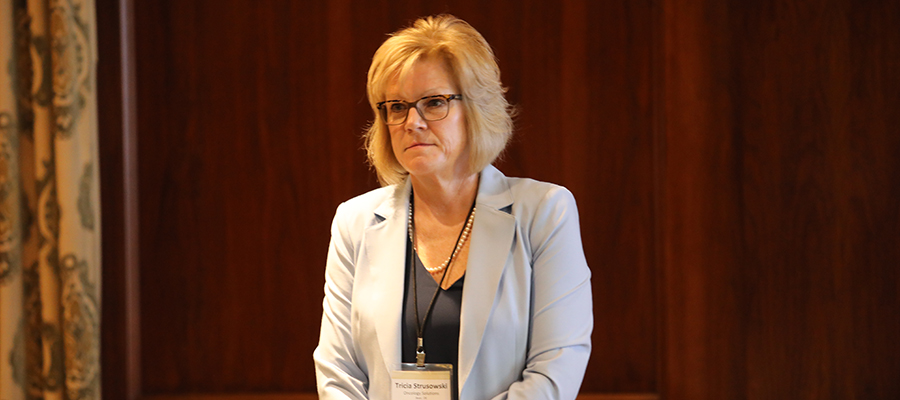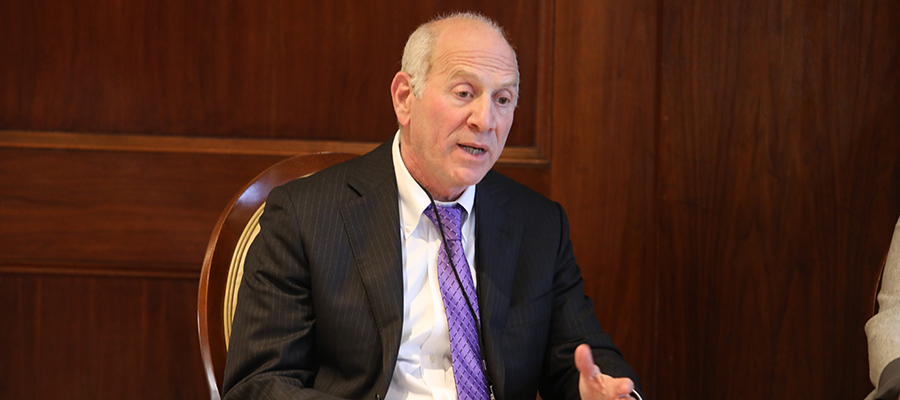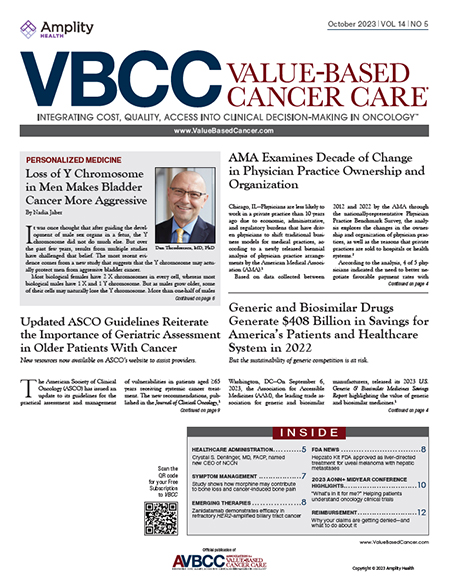
A distinguished panel led by moderator William McGivney engaged in a spirited discussion of the use of value equations in oncology. When asked to define their organizations’ respective roles in enhancing value-driven oncology care, each panelist provided a unique perspective aligning with their place in the cancer care ecosystem.
Peter Bach, MD, Director for Health Policy and Outcomes at Memorial Sloan Kettering Cancer Center in New York, indicated that the role of academia is to test emerging value-based care delivery models, conduct clinical trials, and envision system changes that can help patients gain access to leading-edge technologies and oncology therapies. From his perspective, Bach also raised disparities in care by noting that distribution of value—ensuring that all patients have equal access to high-quality care—must be addressed by stakeholders responsible for delivering value.
Anthony Coletta, MD, MBA, EVP at Independence Blue Cross (IBC) in Pennsylvania, spoke about his organization’s efforts to bring value to oncology care. In recent years, IBC has shifted its efforts to a more partnership-based approach in working with area health systems and hospitals to facilitate meaningful data exchange and transform healthcare. Specifically, Dr Coletta mentioned IBC’s multi- year partnership with Penn Health, which included a number of value initiatives, including a “readmission guarantee” in which Penn Health agreed not to charge IBC for any hospital readmissions within 30 days for any hospitals within their system. These efforts have substantially reduced cost, according to Dr Coletta, and details will be published in the near future.
Drawing on his role as Vice President of Quantitative Sciences Oncology at Merck, panelist Ravinder Dhawan noted that pharma can also contribute to value through continuing to innovate by bringing new products to market that not only extend life, but also help patients maintain their quality of life. Integration of patient-reported outcomes into clinical trial design has allowed researchers to quantify the impact of treatment on quality of life.
Discussing the challenges in further maximizing the societal value of cancer care in our healthcare system, Dr Bach noted that “friction costs” among providers, hospitals, payers, and other stakeholders were inherent to the private, fragmented nature of the US healthcare delivery system, and therefore could not be completely avoided without radical change. Dr Coletta also mentioned the challenges in instilling a sense of collective responsibility to convince all stakeholders to work together for the benefit of the patient despite their differing interests.
The panelists agreed that additional efforts to reduce waste and improve quality—such as phasing in bundled flat payments to Medicare providers and eliminating average sales price–based reimbursement, or implementing an international drug pricing index to level the playing field between US and ex-US drug pricing—would not meet with approval from all stakeholders. Despite the challenges, panelists concurred that innovative, collaborative approaches are needed to ensure that all patients receive high-quality, evidence-based cancer care while minimizing waste in the care delivery and payment system.




